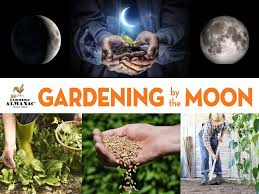
The Case for Early Morning Plant Watering
If you live in an area with hot weather, you might be wondering what the best time of day is to water your plants. After all, you don’t want to water them during the heat of the day, when the sun is at its strongest and evaporation is at its highest. However, you also don’t want to water them at night, when they are more susceptible to fungal diseases. So, what’s the best time to water your plants? The answer is early in the morning, before the sun gets too strong. Here’s why:
1. Cooler temperatures = Less evaporation
When it’s cooler outside, there is less evaporation, which means that more of the water you apply to your plants will be absorbed by their roots. In hot weather, on the other hand, a lot of the water you apply will simply evaporate into the air before it has a chance to reach the roots.
2. Leaves are dryer in the morning
Another reason to water your plants in the morning is that their leaves will be dryer. If you water them at night, their leaves will stay wet all night long, which makes them more susceptible to fungal diseases. Morning watering also gives the leaves a chance to dry out before nightfall, which further reduces the risk of disease.
3. Plants can absorb water more efficiently in the morning
Plants can absorb water more efficiently in the morning because they are actively transpiring (releasing water vapor into the air). This process helps to cool the plant and regulate its internal temperature. As such, watering in the morning allows plants to make better use of the water you apply.
So there you have it! Three good reasons to water your plants in the morning instead of at night. Not only will they lose less water to evaporation, but they’ll also be less likely to develop fungal diseases and they’ll be able to make better use of the water you apply. So next time you’re wondering when the best time to water your plants is, remember: early morning is always best!
What is the best time to water plants in hot weather? In hot weather you need to water in the mornings when it is cooler. This will allow more water to reach the root system before it evaporates in the heat. There may be times when you cannot schedule watering in the morning. In this case, water the plants in the late evening before bed.
How many minutes should you water a garden? Water for 15 or 20 minutes, then check how much water is in the can. If you water for 15 minutes and get 1/4 inch of water, you know you need four times that amount of time to get to an inch. That means you need 60 minutes of watering a week to keep the lawn healthy.
Should I water my garden every day in hot weather? During really hot weather, water your vegetables at least two to three times a week. Watering the garden deeply is critical. The water must go down, down, down to encourage deep roots and get away from the hot soil surface.
Should I water my vegetable garden every day? Plants do best when watered about three times a week, factoring in the rain. If the plants are seedlings, water twice a day until established.